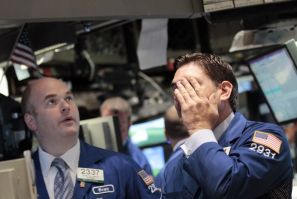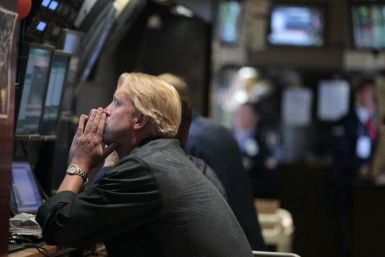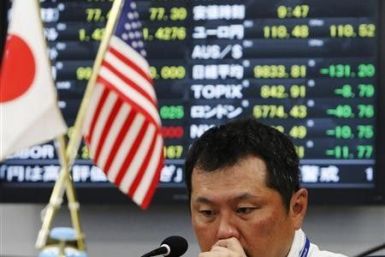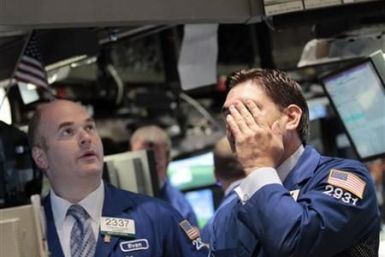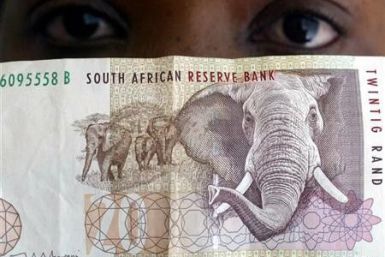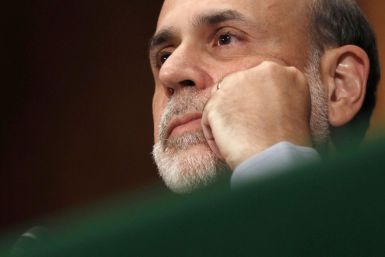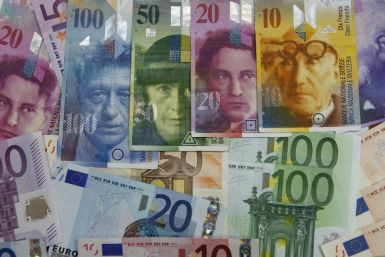U.S. stocks rose in volatile trade on Friday as investors saw a buying opportunity following the sharp sell-off that took the S&P 500 down 10 percent over the last 10 sessions.
U.S. stocks rebounded Friday afternoon on news that the European Central Bank is ready to provide support to Italian and Spanish bonds if those countries commit to specific reforms.
World stocks sank for an eighth straight session of losses on Friday, with investors racked by worries about the slowing global economy and the dangerous spread of euro zone debt anguish into Italy and Spain.
Oil tumbled as much as 6 percent on Thursday, with U.S. crude crashing through technical support to its lowest since February as mounting fears of a stalled economy set off a global race from riskier assets.
The U.S. and European markets got killed on Thursday.
South African government bonds extended a recent rally on Thursday, gaining sharply on the back of worries about the global economy that saw investors running to safer assets.
The U.S. stock market and other risk assets got hammered on Thursday as investors took money off table ahead of Friday's U.S. jobs report and a worsening debt crisis in Europe.
Investors fled Wall Street in the worst stock-market selloff since the middle of the financial crisis in early 2009 in what has turned into a full-fledged correction.The Dow and the S&P tumbled more than 4 percent on Thursday and the Nasdaq lost 5 percent on fear the United States is staring at another recession and that Europe's sovereign debt crisis is swallowing two of its largest economies.
Stocks resumed their downward march on Thursday after a one-day reprieve with all three major indexes down more than 1 percent as a labor market report added to recent evidence the economy has lost momentum.
The European Central Bank resumed buying government bonds from the market and offered a new round of funding to commercial banks on Thursday in response to a worsening euro zone debt crisis.
The European Central Bank signaled on Thursday that it was buying government bonds in response to a deepening debt crisis as it also offered a new round of liquidity to banks.
The two large banks decided to keep interests rates steady.
Euro zone sovereign bond markets steadied on Thursday ahead of a crucial European Central Bank policy-setting meeting that investors hope will signal a more aggressive approach to fighting the currency area's debt crisis.
The world's economy moved closer to stagnation last month as firms in Asia and Europe reined back in the face of an ongoing debt crisis and signs of a new U.S. slowdown, business surveys showed on Wednesday.
The Swiss National Bank cut its interest rate target band on Wednesday in a surprise move to stem the rapid rise of the Swiss franc, which investors have flocked to seeking harbor from the European and U.S. debt crises.
European Council President Herman Van Rompuy may get an enlarged role as coordinator and spokesman for the euro in an effort to impose greater policy discipline in the single currency area, EU sources say.
South African government bonds rose on Tuesday, boosted by an auction which saw the strongest demand in a year with foreign buying a key feature.
Euro zone growth is set to be above its ideal non-inflationary potential rate for 2011 and 2012, but inflation expectations remain anchored, European Central Bank Governing Council member Yves Mersch was quoted as saying.
Christine Lagarde, managing director of the International Monetary Fund, said the dollar may weaken if the U.S. Congress fails to raise the U.S. debt ceiling.
Speculating on Greece defaulting is a sure way to lose money, European Central Bank President Jean-Claude Trichet was quoted as saying in remarks released on Wednesday.
Assuming President Barack Obama and Congressional Republicans can not resolve the debt deal dispute in eight days, the unfathomable will happen -- a default by the U.S. Government. But that begs the question: what will the U.S. Federal Reserve do, if the U.S. Government defaults?
The dollar slumped to a record low against the Swiss franc and a four-month trough versus the yen on Monday, with more losses seen if U.S. lawmakers fail to compromise on a deficit reduction plan.






